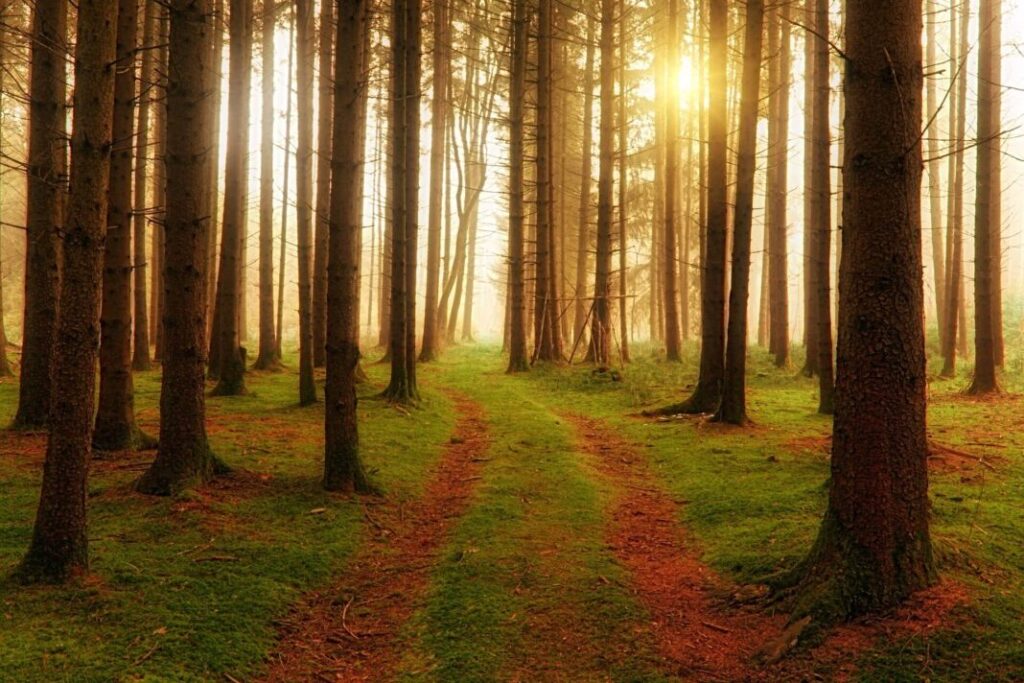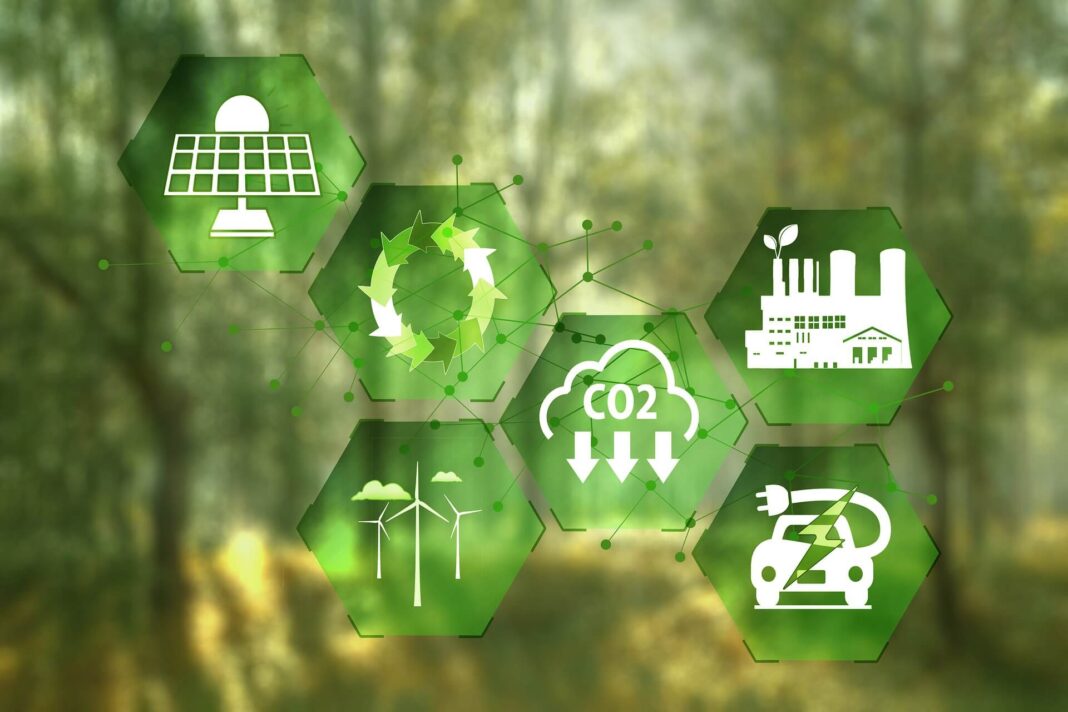Some companies purchase a type of carbon offset where a forest owner promises not to cut down trees.
In an investigative report filed by Olivia Wannon of Stuff NZ, consumers drinking “zero carbon” Garage Project beer or Otis Oat Milk might think their beverage was saving the planet. Still, there’s evidence the same benefits are questionable.
The companies are two of many purchasing a type of carbon offset earned when a forest owner promises not to cut down their trees.
Protecting forests is a valuable exercise. But based on government information, Stuff found the scheme selling the offsets may have overestimated the effect of logging if it wasn’t protecting the forest.
The offsets are called ‘avoided deforestation’ –landowners who could make money from felling trees (releasing carbon) instead sell offsets.

Although protecting trees is undoubtedly good, this kind of product has been under scrutiny internationally because it’s tough to determine who had genuine plans to fell forest, and how many trees would have been lost without the cash.
The credits bought by Otis and Garage Project are from a New Zealand-based project, run by environmental company Ekos – which asked the owner of a regenerating forest in Southland to stop harvesting trees in exchange for carbon credits.
Although the law prohibits clear-felling native forests, landowners can selectively harvest species such as beech and rimu.
The offset revenue helps the Southland Forest owners to pay for pest control and develops local employment.
In project documents, Ekos claimed that Southland’s Rarakau forest would have essentially stopped growing without its offsets. The company states that commercial logging “arrest[s] the process of natural succession”.
However, information from the Ministry for Primary Industries – which oversees and does field audits on harvested forests, including Rarakau before logging stopped – challenges that claim.
Only a limited amount of timber can be taken, a ministry official told Stuff. Each year, a regenerating forest should produce more wood than can be removed, meaning that even selectively harvested forests should continue to grow and suck in carbon.
The expected behaviour of harvested forests matter because carbon offsets should only be issued for the difference they are making.
Owners with beech forests are allowed, by law, to harvest some of their native trees selectively.
Ekos founder Sean Weaver disputes that he has overstated the project’s impact. Even if the maths on logging is wrong, he said, the issue can be fixed.
When asked, Weaver provided no data showing that the Rarakau land or sustainably harvested forests entered a state of arrested development.
“You use the data available at the time. If there’s no data, you have to use some kind of proxy. So that’s what we did.”
Indigenous forestry manager Alastair Kernahan, working for Te Uru Rākau with the Ministry for Primary Industries, stated that a regenerating forest will grow annually, even with selective harvesting. Each forest has a set limit on the amount of timber that can be harvested, which Kernahan explained is “less than the total annual growth” of the entire forest.
Stuff confronted Weaver with this evidence, who denied any wrongdoing but acknowledged the validity of the issue. Before the project’s commencement in 2014, Weaver consulted with what is now the Ministry for Primary Industries and collaborated with then-Landcare Research scientist Ian Payton.
In a statement shared with Stuff by Weaver, Payton mentioned that an arrested forest was a “logical starting point.” However, he added that adjustments might be necessary when more data becomes available.
Weaver said he took the process “very seriously and very conservatively”.
Weaver mentioned that Ekos has already begun collecting data for a project review, which will consider the issues raised by Stuff.
In one of the multiple responses sent to Stuff, he provided several reasons why he believes the project did not oversell offsets. For instance, the scheme retains 20% of credits in reserve. Weaver explained that this reserve could account for adjustments concerning issues like those brought up by Stuff.
If the reserve proves insufficient, Weaver stated that the scheme could reduce the number of offsets sold in the future. Any corrections would always be applied retroactively, he added. “I’m not a crook,” Weaver said in an interview.
Sean Weaver founded Ekos, an organisation that helps firms to measure, reduce and offset emissions.
Ekos carbon credits are certified by Plan Vivo, an independent body.
It’s a rigorous process, Weaver said, and Ekos followed best practice.
“If you’re going to buy some eggs from the supermarket, and it says they’re organic… the farmer should say: ‘Don’t challenge me. Go take it up with the auditor. Because I’m doing the best I can.”
Plan Vivo’s chief executive Keith Bohannon said its in-house technical advisers and external experts reviewed Ekos’ project. The auditor who undertook the final quality assurance tests “holds a PhD in forest carbon accounting”.
Plan Vivo’s rules did not require Ekos to collect evidence from other selectively harvested forests to substantiate its claim that the Rarakau forest’s growth would be arrested under selective logging, Bohannon said – because it “was not possible” to get an appropriate comparison.
“While we welcome constructive external scrutiny and are very open to working with others to look at ways to improve the way we work, we are also confident that all projects certified under Plan Vivo are delivering real, additional and verifiable climate impact.”
Weaver said he was confident the Rarakau project has “a small but positive” environmental benefit.
Ekos also partners with companies like Garage Project and Otis Oat Milk to measure their carbon footprints and decrease emissions, not just offset them.
In 2019, Garage Project bought offsets from Rarakau as part of its Zero Carbon business certification, although it has used credits from other projects since, according to co-founder Jos Ruffell. He added that the company works closely with Ekos on certification, stating, “Ekos are satisfied that their systems are robust.”
Vehicles account for 20% of the country’s yearly greenhouse gas emissions, which continues to grow. One-third of all car trips cover distances under 2km.
Reducing these short journeys can save fuel, money, and emissions. Combining multiple errands into one trip or walking or cycling to a nearby store can help minimize emissions.
The forest owner, Rowallan Alton Incorporation, allocates its revenue to pest control, agricultural business development, and youth training. The organization also plants and safeguards native trees with assistance from the regional council.
In a statement provided by Ekos, Rowallan Alton Incorporation Chairperson Harold Thomas said the offsets offer a valuable income source. “The carbon credits project has been helping us build a future for our people and it is great that we can also be climate champions simultaneously,” Thomas said.
“The level of effort involved to do this properly is an order of magnitude more onerous than what was required to log the forest, but Ekos persevered with this to the benefit of this project.”
- Read the original published article ‘Southland carbon offset project may have overestimated the effect of logging’






